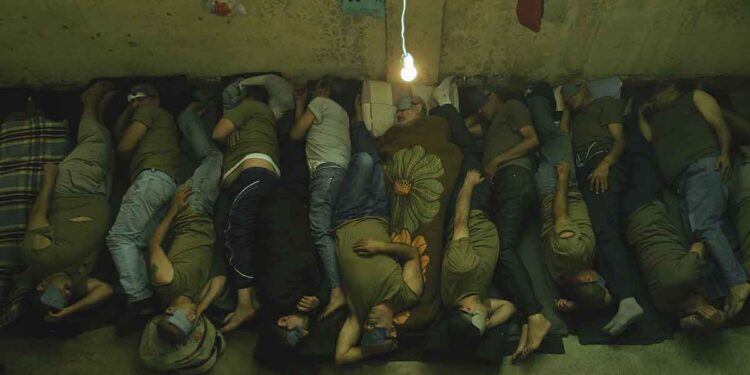Arab Organisation for Human Rights in the UK (AOHR UK) affirmed that the current conditions of detention in Egypt pose a serious threat to the lives of detainees, in light of the psychological and physical torture practiced by prison administrations against political detainees.
The physical and psychological condition of a number of political detainees in Egypt reflects their suffering, as they are denied all legal ways for redress or to bring an end to the violations practiced against them on ongoing basis. The amount of torture they suffer becomes visible during court sessions, or through leaked messages from detainees send to their families, who are deprived of paying visits to their detained family members.
The family of the detained Egyptian activist, Alaa Abdel-Fattah, had announced the leakage of a letter in his handwriting to his family in which he spoke of his intention to commit suicide if he does not get released, expressing his inability to tolerate the conditions of his detention and the treatment he receives in prison, adding that he is subjected to constant abuse inside his solitary confinement, in addition to being denied family visits or communicating with his lawyer or family, in addition to his deteriorating health condition amid lack of any medical care.
Alaa Abdel-Fattah, one of the most prominent activists of the Egyptian January 2011 revolution, has spent nearly seven years in Egyptian prisons since Sisi took power.
He was arrested for the first time in 2014 on charges of demonstrating without permission and released after serving his sentence in 2019.
Almost two months after his release, he was re-arrested on charges of spreading false news, and the judicial authorities are still renewing his detention without trial so far.
Furthermore, pictures were shared widely of the two detained activists, Aisha Al-Shater and Hoda Abdel Moneim, from the first court sessions that they suffer from general weakness.
On September 13, during the court session, Al-Shater seemed very weak and tired, that her children could not recognize her, as she suffered contracted pernicious anemia, and a failed spinal cord, due to the harsh conditions of detention, denial of treatment, while the authorities refuse to release her without any justification.
The prominent detained lawyer and human rights lawyer, Hoda Abdel Moneim, who is over sixty years old, was in a very poor condition as she suffers from serious medical neglect in prison since her arrest, despite the complete failure of her left kidney with regurgitation in the right kidney.
The Egyptian security forces had arrested Aisha Al-Shater and Hoda Abdel Moneim with 16 others, including lawyer Mohamed Abu Huraira, Al-Shater’s husband, at the beginning of November 2018.
After almost three years of pretrial detention and extension of detention without legal justification, the group was referred to The Criminal Court last Wednesday on charges including spreading false news, misusing social media, and affiliating to a terrorist group.
AOHR UK stressed that the judiciary’s disregard of the physical and psychological state of detainees, and the issuance of renewal of detention without legal basis, is new evidence of the absence of justice in Egypt, which is controlled by the security authorities. It also reveals that the real purpose behind the arrest of political detainees and dissidents is to liquidate them through medical negligence and slow killing.
AOHR UK called on the international community, the Secretary-General of the United Nations, and the relevant international bodies, to pressure the Egyptian regime to save the lives of tens of thousands of Egyptian detainees from a slow death, as they suffer systematic physical and psychological, and to release all political detainees in Egypt.






























